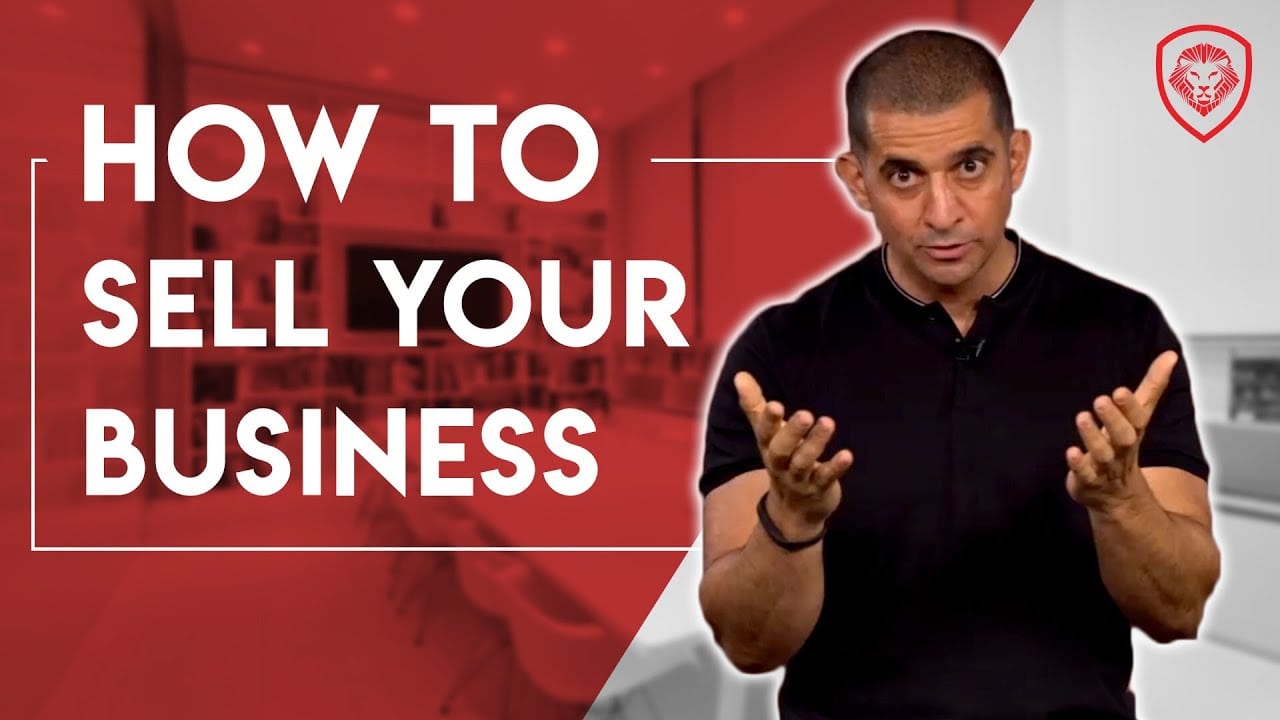Selling your company, your baby can be nerve-racking. How do you know it’s the right time? Can you give up something you built with your own two hands?
Don’t worry, Patrick Bet-David has got you covered with twelve easy steps that will provide clarity on the process of selling your business. Whether you are a founder/CEO or an employee looking to make the jump into entrepreneurship, these steps will get you in the right mindset to answer whether you should sell your company and how to do it.
12 Steps for Selling Your Business at the Highest Value
-
Why Are You Selling?
- The first thing you have to ask yourself is why do you want to sell in the first place? Do you need time off, are you burned out? Is it bad financial decisions driving the sale? Are partners pushing you out?
- Seek out other people who have sold their businesses and ask them if they regretted it or never looked back after selling, to help you get some perspective.
-
Meet With an M&A Banker or Broker
- Once you decide to sell you need to get educated from a Mergers and Acquisitions Banker. They can connect you with their clients who are millionaires and billionaires who want to buy companies. These bankers will also provide insight into how the whole process is going to work from end to end.
-
Set Timeline Expectations
- Setting a timeline can help you work backward establishing benchmarks to reach before that deadline of selling. Remember to watch the market and remain nimble, so you can pivot if there are changes between now and when you want to sell 2, 5, 10 years from now.
-
Know Your Exit Strategy
- Build a complete strategy especially who is an ideal buyer. It could be anyone with a checkbook or a trusted partner who needs your systems and technology to grow their own business. Whoever it is you need to have that buyer in mind, so you are discerning when the time comes.
-
Define Your Buyer
- There are four different kinds of buyers to look out for when you go out and start selling your business:
- A buyer that is interested but can’t afford it.
- A buyer that can buy 10 of you but has no interest in you personally.
- A buyer that only wants insider information and won’t buy at all.
- Finally, the buyer you want! They have the money, are interested, and are willing to cut a deal.
- There are four different kinds of buyers to look out for when you go out and start selling your business:
-
Increase Value of Your Company
- Think about it like selling your house. Investing money to improve your house before a sale can net you more money. You could hire a CFO who has experience with these types of sales or improve your sales force and technology. These value increases can net you more money.
-
Call Lawyers and Organize Contracts
- When you sell your company, you are going to need to show them everything. Get on the phone with your attorney, today, and have them bring all your contracts and agreements into one place ready for sale.
-
Fire CPA’s and Hire Regional Team
- Organized financials can make or break a sale. Upgrade your financial team by hiring a firm to work with you rather than a local CPA. It will cost more now for your audited financials, but it will impress your buyer and maybe drive up your asking price.
-
Have a Good Story for a Buyer
- When the time comes to sell, you need to update your company’s story to one that will attract your ideal buyer. This goes beyond a great pitch deck. Your story needs to be reflected in your office space, your website, and your marketing materials.
-
The Negotiation Process
- The time has finally come! There are two ways the negotiations can go down: The owner sells the company themselves OR they hire an M&A Broker and invest that broker fee into getting a much larger sale price than going it alone.
-
Companies are Bought Differently
- There are a bunch of different offers that you could be presented with when selling your company:
- Straight cash, no commitment, no non-compete.
- A non-compete sale with a term limit of a few years.
- They could buy in exchange for stock options instead of cash or mixed in with cash.
- Finally, they’ll buy the company and offer you a salary to stick around for a short time after the sale.
- There are a bunch of different offers that you could be presented with when selling your company:
-
The Closing Process
- You could breeze through all eleven steps and still have the deal fall apart at closing. Why? Because your numbers were slightly off or not matching up. You need to be aware of the last few steps that will close this deal.
- Indication of Interest (IOI) – The buyer looks over all your numbers you have gathered for the sale and makes sure they are real.
- Letter of Intent (LOI) – The buyer will submit this term sheet with their offer. It will include all the details of the sale that you then use to hammer out the final terms.
- Purchase Agreement – The last step! After the buyer performs their own audit, the buyer will submit this agreement for you to sign. Then check that bank account and count those zeros!
- You could breeze through all eleven steps and still have the deal fall apart at closing. Why? Because your numbers were slightly off or not matching up. You need to be aware of the last few steps that will close this deal.
Recommended videos: If you are interested in how to just raise money and not sell your company, check out the video How To Raise Money and if you need an attorney to go over your paperwork watch How To Hire an Attorney
Subscribe to Valuetainment
Visit the official Valuetainment Store for gear
About Valuetainment:
Founded in 2012 by Patrick Bet-David, our goal is to impact entrepreneurs around the world through value and entertainment. We are the #1 channel for entrepreneurs because of the best interviews, best how to videos, best case studies and because we defend capitalism and educate entrepreneurs.
To reach the Valuetainment team you can email: marketing@patrickbetdavid.com
Follow Patrick on social media:










